Thursday, October 5 2017.
A day that would change the face of sexual harassment.
Reporters Megan Twohey and Jodi Kantor working for The New York Times published their probing investigation into the corrupt systematic abuse and harassment conducted by director Harvey Weinstein.
This expose would ignite an international spark, provoking a global discussion about sexual harassment by those in positions of power.
The article titled ‘Harvey Weinstein Paid Off Sexual Harassment Accusers for Decades’ has proven to be a reckoning, rippling out across Hollywood, forcing celebrities within the Hollywood industry to break the silence and speak out about years of methodical abuse at the hands the empowered major players of Hollywood.
However, months before this, 23-year-old Eliza Hatch began her own photojournalistic quest to force society to acknowledge the problem of harassment.
And now, with almost 10,000 followers on Instagram, transatlantic photography exhibitions, and a drive to expand the network of featured women globally eventually immortalising the stories in a book, Eliza has taken huge steps to fracturing the misogynistic behaviour following women as they traverse across the city.
When she had shaken off the remnants of girlhood and drawn on the boots of adulthood that she would wear to traverse the difficult path of femininity through puberty and beyond, she began to notice a new vernacular used to address her.
Clad in her school uniform, Eliza was forced to develop a thicker skin. Comments of harassment followed her, stalked her, as if she were the prey in a game of cat and mouse she had never willingly agreed to play.
Like other women, Eliza had not been trained to respond to this behaviour. She had been taught her ABCs and her times tables, but where in her schooling had been the lesson about how to respond to catcalls and sexual jokes at her expense. She was ill-equipped to deal with this. So, like many before her, she habitually turned the other cheek.
For years, Eliza bowed her head and accepted the state of things. Catcalls and this type of harassment was the status quo. The random man driving past and asking you to hop in the back of his car, the guy speaking to your chest with occasional half-hearted glances back to your eyes: these are staple characters which populate the periphery of your life, and like us all, they became a constant presence at the edge of Eliza’s existence.
She accepted it. Until one comment challenged the status quo.
“Cheer up, love.”
This comment induced Eliza into “such a range of emotions in such a short space of time, it completely disarmed me, it made me feel so guilty for not looking happy, self-conscious for what I looked like and then angry. So angry. Enraged that a complete stranger had told me how to look and how to feel.”
After this, she sat down with friends and they discussed similar experiences. The conversation was endless.
This sharing of experience with female friends proved to her that this had become a way of daily life, that women expected and, sadly, accepted as just part of life.
But speaking with male friends, she encountered complete disbelief and bewilderment. They had not witnessed it. Therefore, it could simply not be true.
Those three simple words would resonate with Eliza and awaken her rage, leading her to take ownership of those words in her own way and create Cheer Up Luv.
“Cheer Up Luv”, founded in January 2017, is a photographic series documenting women who have experienced sexual harassment on any scale in a public setting.
Living in Clapham, Eliza is a force to be reckoned with. She has held onto the anger that first motivated her and built herself a platform from which she inspires others.
When the Harvey Weinstein allegations surfaced in the media, male friends who had challenged her, apologised, and sent press clippings, willing to now acknowledge that there was a systemic issue.
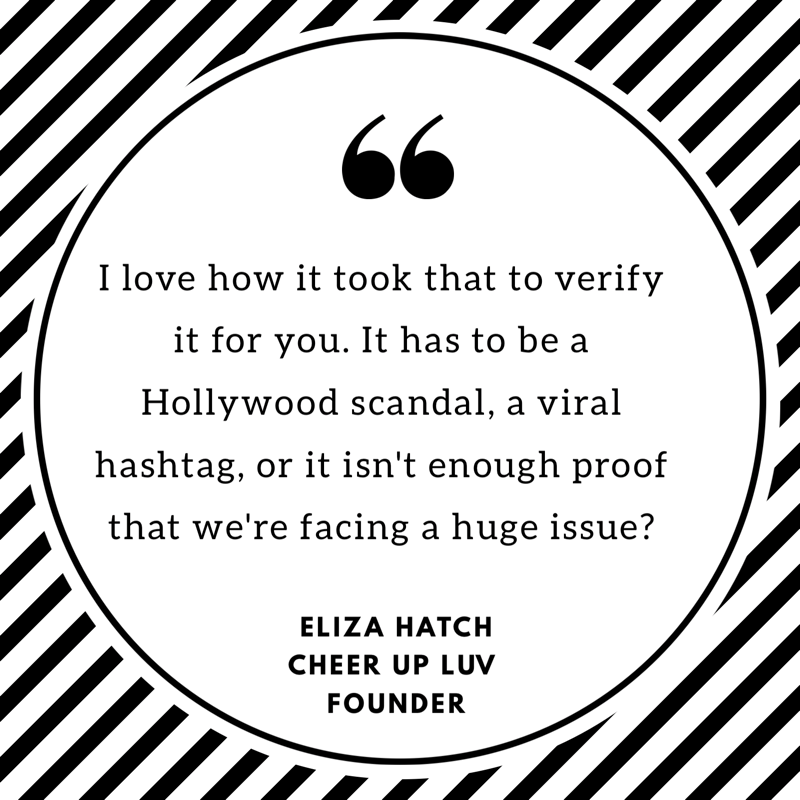
She has been in awe of the sensationalisation of the Harvey Weinstein scandal across the media, and hopes it will not fall out of public consciousness.
She believes society suffers from a lack of awareness. However, it is currently under the media telescope and she hopes awareness will lead to industry, policy and behavioural changes.
Currently, we are struck with a glaring lack of awareness with the male sex. Men assume 20-29% of women have been sexually harassed, whereas women assume the number is closer to 70-89%. The reality is 53% of women admit to being sexual harassed throughout their lifetime.
Instead of just 20-29% of women, every one of Eliza’s female friends had experienced harassment. Their stories were endless. The viral hashtag was endless. The women willing to share their thoughts and their experiences was endless.
Her project is a literal fight back against the ability to forget these victims. It is a forceful acknowledgement of each individual woman and the harassment they have endured.
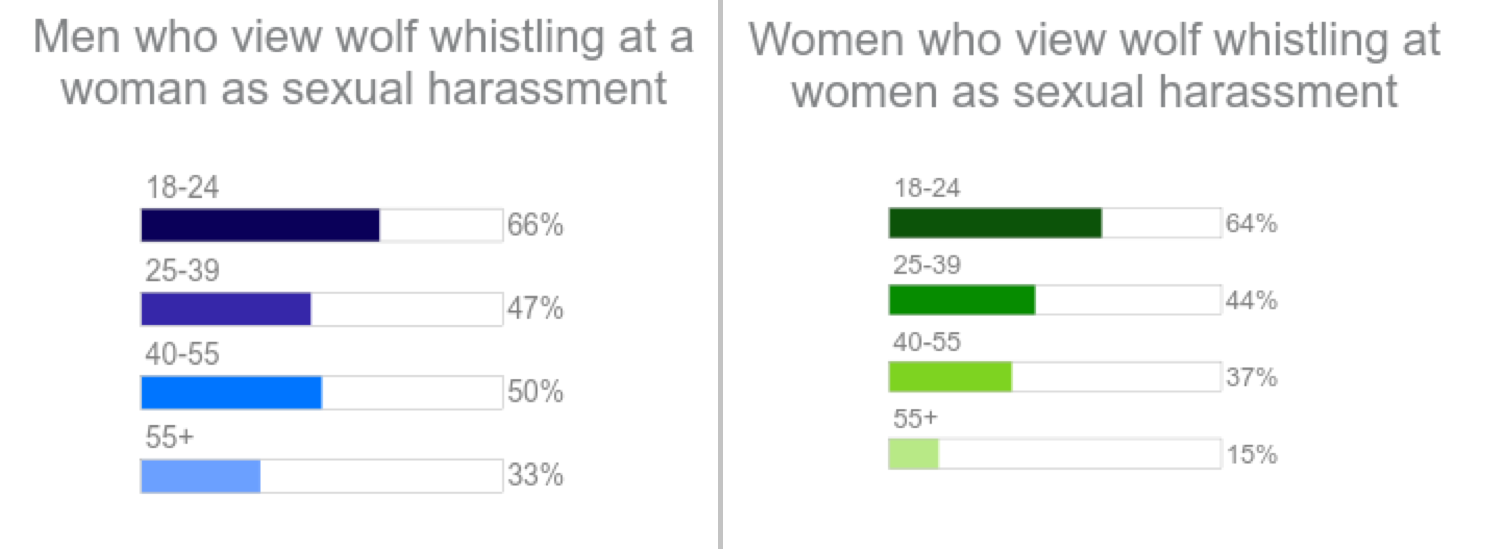
Her project has encountered criticism however, especially from older women, whose definition of sexual harassment and conditioned response appears to widely differ from the millennial generation. There is a fatal disharmony between the views of the younger and older generations when it comes to sexual harassment.
In a recent survey individuals were asked to classify behaviours as harassment or not. The results were astonishing. Across the board, older men and women were more accepting of sexist behaviour, and younger generations were more authoritative about their conditioned boundaries.
Investigations have also been launched to reveal the levels of sexual harassment in public spaces. This is the sexual harassment targeted in Eliza’s project.
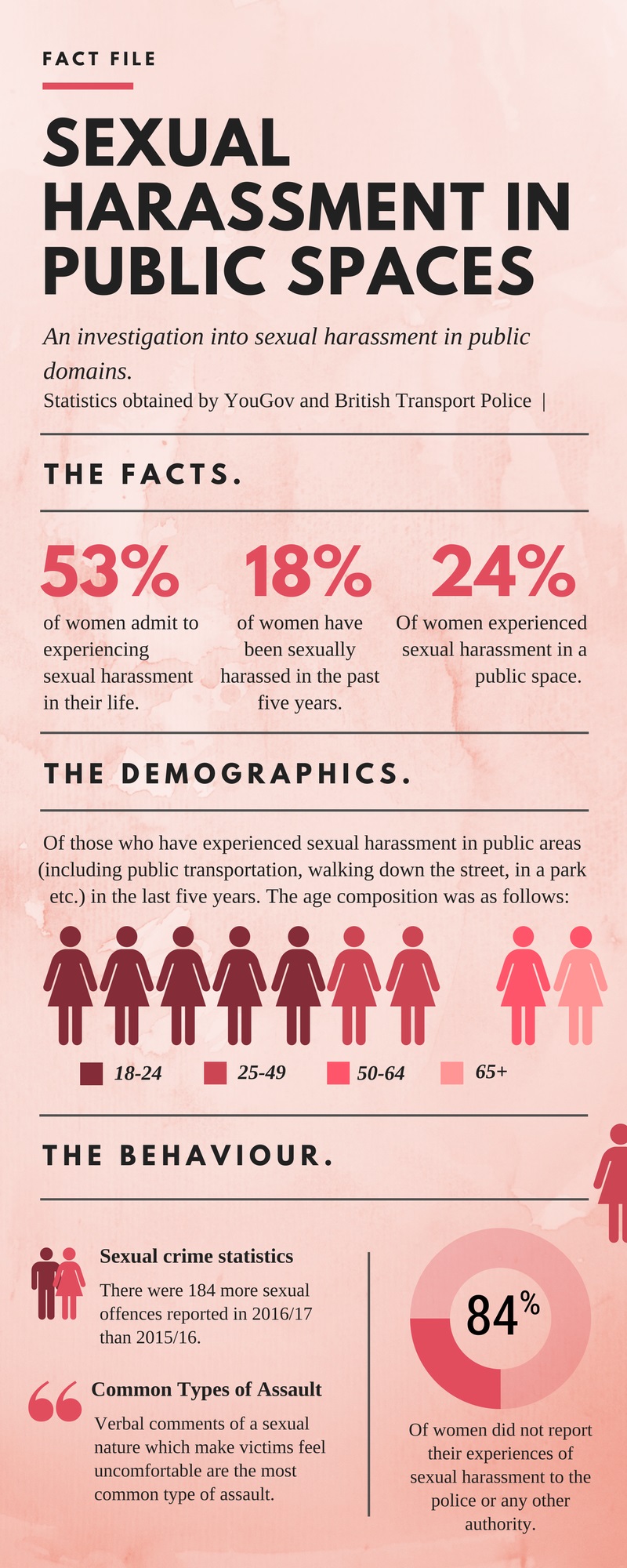
Cheer Up Luv has physically put faces to these statistics.
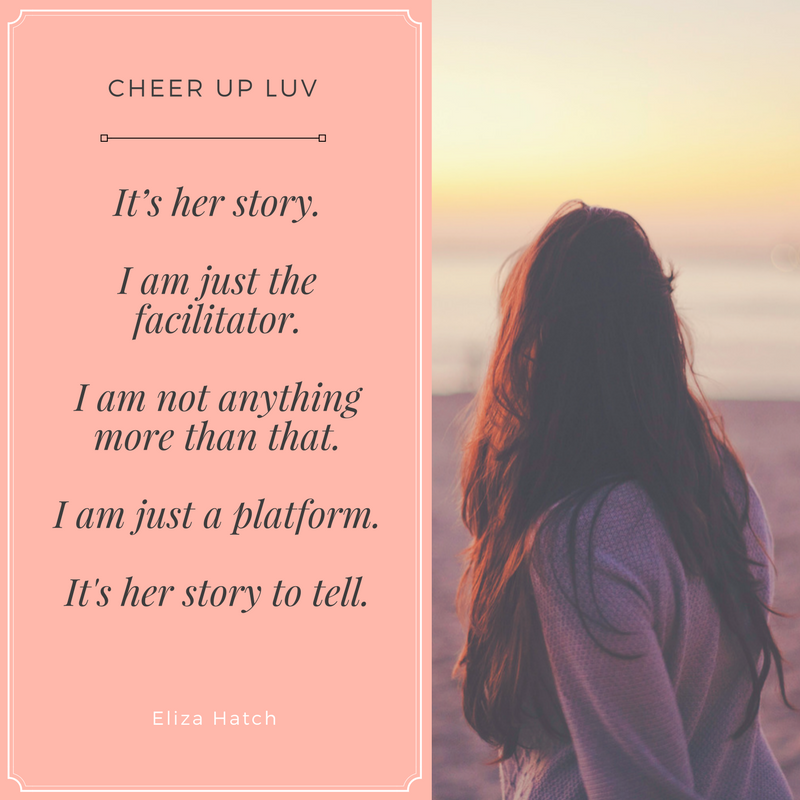
For Eliza, education is the only way to challenge this behaviour. To curtail the issue, the problem must be addressed at its root.
She said: “It’s such an engrained part of human society for men in general. It is such an engrained mentality for our entire society.
“It’s like drugs. Telling someone that drugs are illegal. People still do drugs and still commit crimes even though they are illegal. So it is the mentality that needs to change rather than the legality of these comments. And the only way for that to happen is to teach it early and condition that behaviour at that early age before it develops into something much worse.”
Instead, we reside in a world where pervasive cultural messages exploit the female image, telling society that the female body is available for its pleasure, for its gaze and for the taking. As long as women are groped on public transport, masturbated at in the street and inclined to walk with their keys gripped in their palm for protection on their journey home, we will continue to have a misogyny problem.
To tackle this issue, Eliza visits schools and hopes that through her photographs, her public speaking and workshops on the subject, she will be able to educate both children and older people who may have been culprits, and deconstruct the sources of the systemic problem of sexual harassment in public spaces.
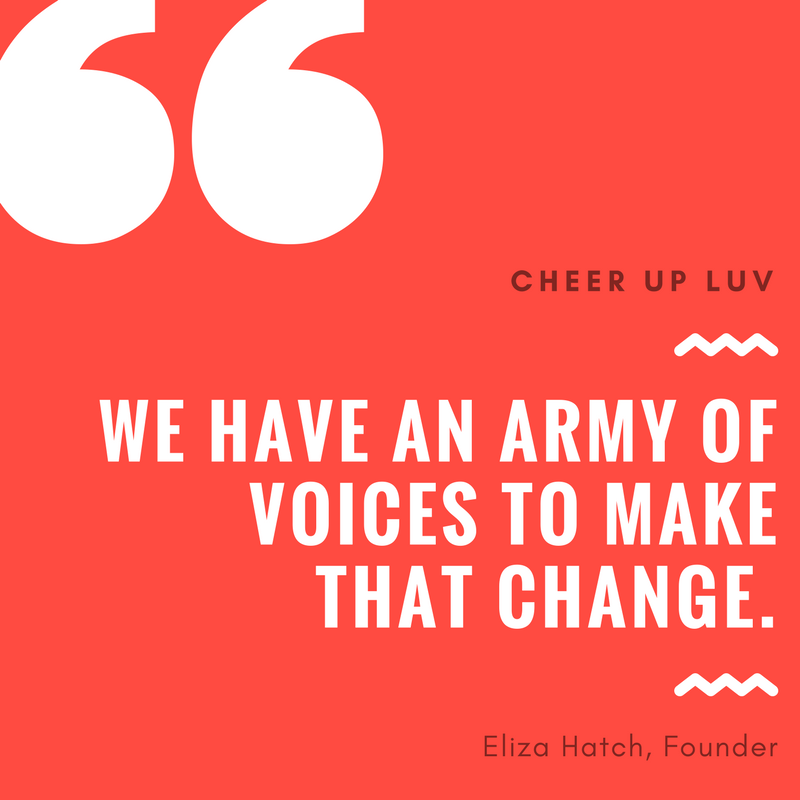
Three simple words to inspire this army of voices.
And that is the story of Eliza Hatch and Cheer Up Luv.




